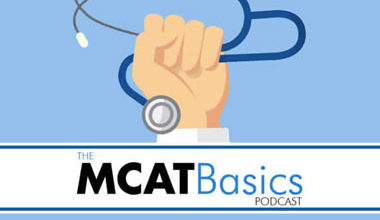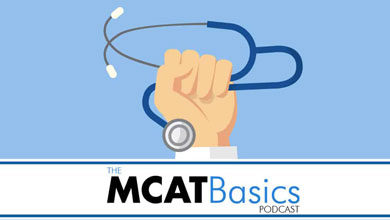In this episode, we focus on biosignaling and cover how cells communicate through systems like voltage-gated and ligand-gated ion channels, using real-world examples such as neuronal signaling and muscle contraction.
We also break down the role of enzyme-linked receptors, specifically receptor tyrosine kinases (RTKs), and explore how these pathways are involved in cell growth and cancer. Additionally, we take a detailed look at G-protein coupled receptors (GPCRs) and their role in activating secondary messenger systems like cyclic AMP (cAMP).
Visit MedSchoolCoach.com for more help with the MCAT.
Jump into the conversation:
(00:00) Intro
(00:32) Overview of Biosignaling
(01:05) Introduction to Biosignaling and its Importance
(01:49) Stimulus-Response Concept: Fight or flight, glucose homeostasis, transcription regulation
(02:34) Voltage-Gated Ion Channels: Activated by changes in membrane potential
(03:29) Action Potential: Sodium channels and signal propagation
(05:01) Ligand-Gated Ion Channels: Role in neuron-to-neuron signaling
(06:01) Muscle Contraction: Acetylcholine’s role in skeletal muscle contraction
(07:29) Misconception on Calcium: Sodium initiates muscle cell depolarization, not calcium
(08:33) Enzyme-Linked Receptors: Focus on receptor tyrosine kinases (RTKs)
(09:39) RTKs and Cancer: How RTK signaling pathways are linked to cancer
(12:00) G-Protein Coupled Receptors (GPCR): Structure and function of GPCRs
(14:43) Adenylate Cyclase and cAMP: Role of GTP in activating adenylate cyclase and producing cAMP
(18:10) Quiz Question 1: Ion specificity in potassium channels
(22:54) Quiz Question 2: Hypertension treatment and G-protein pathways
(25:00) Biosignaling as the foundation for cellular responses

